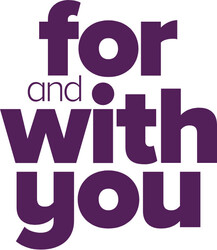Spending less on internet.
Social media, email, instant messaging, streaming entertainment and work from home arrangements make access to the internet an essential service for many people these days.
There is a wide variety of internet services available ranging from 4G and 5G mobile services, cable and fibre NBN™ and satellite. Internet access costs vary based on the access technology, speed, provider and to a small extent download/upload capacity.
In general, speeds are increasing, upload and download capacities are increasing and the costs across different technologies are converging. So, it makes sense to regularly review your options.
To give you a sense of potential savings, prices shown on the Whistleout comparison site for a 50 Mbps NBN connection range from $55 per month to $75 per month and that’s just within the one type of internet option. If you have the wrong type of connection or plan you could be wasting even more!
Here are some tips to help you minimise your spending and get good value for money.
Decide how much speed you need.
These days, one of the key things to consider is what download (and to a lesser extent, how much upload speed) you need. The higher the speed, the higher the cost of your internet plan.
Here is a rough guide to different speeds available and what they are suitable for.
| Download speed | Suitable for |
| 12Mbps | One to two people with several devices used for email, social media, web browsing and a single, standard definition TV streaming service. |
| 25Mbps | One to two people with several devices used for email, social media, web browsing and a single, high definition TV streaming service. |
| 50Mbps | Four to six people with several devices, used for email, social media, web browsing and a several simultaneous high definition tv streaming services. |
| 100Mbps | Six to nine people with several devices, used for email, social media, web browsing, gaming, file downloading and streaming ultra-high definition TV services. |
| 250Mbs | Six to nine people with several devices, used for email, social media, web browsing, gaming, file downloading and streaming several ultra-high definition TV services. |
| 750Mbs | Six to nine people with several devices, used for email, social media, web browsing, gaming, file downloading and streaming 8K video or several ultra-high-definition TV services. |
The most common connection speed in Australia is currently 50Mbps.
Connection type.
The type of connection you can choose will depend on where you live. The options generally include fixed NBN, 5G wireless and satellite. There are various types of fixed NBN connections, including fibre to the premises, fibre to the node or building, fibre to the curb and hybrid fibre coaxial.
Connection type is important because it affects the speed options available and, in some cases, the cost of internet plans. You can use the NBN website to check what connection types are available in your area.
Other money-saving tactics.
Bundling.
Bundling internet services with other household services has become popular. It’s not unusual for energy retailers and financial services companies to offer bundled internet services. Bundling services can save you money, but check the price and the service carefully.
Your phone hotspot.
If you have a mobile phone plan with lots of data, good mobile phone coverage (especially if you are in an area with 5G coverage) and your internet needs are modest you might be able to hotspot your phone to get internet access at home. Keep in mind that when you leave the house and take your phone there’ll be no internet access at home.
Researching your options.
Prepared with an idea of what speed you need and what connection types are available, you can start to research plans and prices.
Whilst you can head to each provider's website and do your own research this will be time consuming and there are probably smaller internet service providers you probably won’t even think to look at.
A smarter option would be to use one or more of the comparison sites to help with your research. As with all comparison sites, keep in mind that they probably won’t include all the options that are available and the suggestions might be influenced by commissions or revenue agreements – so proceed with caution.
Try the Whistleout, Canstar Blue or Finder comparison services.
You can also use the Australian Competition & Consumer Commission's Broadband performance data report to check the performance and reliability of your existing internet service provider or other service providers you are considering.






